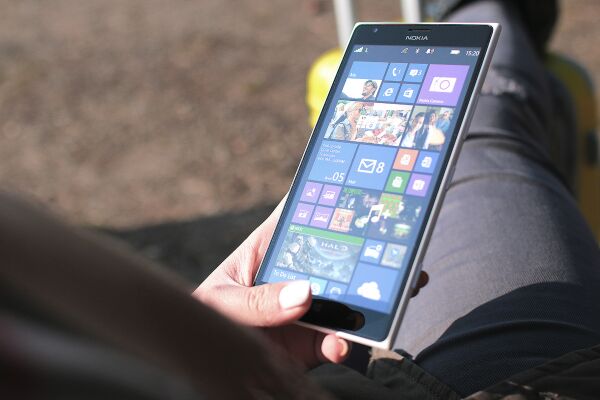Using Social Media to Promote Your Research
Introduction
Increase your research impact by engaging on social media and curating your online research profile. Determine what platforms match your research mobilizing and disseminating goals and enable you to reach your target audiences. These resources will guide you as you craft your scholarly message for online media outlets. Please note this is a non-exhaustive list of resources and social media is always evolving and changing as a medium.

Building an Online Research Profile through Social Media
The number of citations your research accrues is one measure of impact on the global research community.
Quick References for Getting Started
Take control! If you do not manage your online presence, you are allowing search engines to create your identity for you. This article discusses the need to shape one’s digital identity or online persona as an academic and researcher.
This article discusses the value of ‘your brand’. If you present yourself online in accordance with your field of study, new opportunities may come your way.
Selling yourself can sometimes be quite difficult for academics, but as John Tregoning argues, scientific salesmanship could be vital for career progression.
Using Twitter, Instagram, Facebook, Kudos, Reddit, or Blogging to promote your research? Some tips from the Office of Scholarly Communication, University of Kent.
This 2020 article is written by a group of researchers who have a strong feeling that they have personally benefited from using Twitter, both research-wise and network-wise. They share their personal experience and advice in the form of ten simple rules.
The Economic and Social Research Council provides an overview of the benefits of social media and information on choosing which platform to use

Engaging on Social Media as an Academic
General Considerations and Pitfalls to Avoid
Jackman Humanities Institute presented a social media workshop with Dr. Jooyoung Lee, Associate Professor of Sociology and this web page presents a summary of his best practices of building and navigating as a public facing academic.
A 2021 advice column from The Chronicle of Higher Education on navigating and contending with online safety for faculty and staff.
In 2020 the authors contacted Media Relations Offices’ at Canadian Universities. The report summarizes what information universities make available to scholars for dealing with trolling, doxxing, and harassment when they do public and media work. They provide recommendations on resources needed to address gaps in current service.
Some “best practice” guidelines from respected online and industry sources to help you use these forums effectively, protect your personal and professional reputation, and follow university policies.
Additional Resources
A definitive guide to the social and creative media tools available to academics, and how you can use them as you go about your scholarly work.
There’s always so much happening at U of T! Connect with U of T on social media. Use this directory to find and connect with the university community on social media.
Better protect yourself online with this free and easy to use personalized security planner. From backing up files to reducing online tracking, this tool originally developed by the Citizen Lab at UofT, can help you understand your risks online.
This page offers University of Toronto specific definitions and guidelines for faculty members and librarians at the institution. It outlines the University’s approach, best practices for social media, and available supports.
This 2019 article analyzes the benefits and challenges of scholars enacting social scholarship and provides recommendations.

Promoting Your Research Findings
Promote your Research Findings and Publications
An online tool and platform to showcase, highlight, and promote research for UofT researchers. DiscoverResearch uses automated data from trusted sources (e.g., TSpace, PubMed, Web of Science, Scopus, RIS, and more) to populate researchers’ public facing profiles.
Discover how to use social media to promote your journal articles, books, book chapters or case studies.
Experts weigh in on how to make the most of a tweet. 10 tips for tweeting about research to make an impact.
Use your profile to tell people about your research and experience, what you teach, and what your interests are.
To avoid the pitfalls and fully reap the benefits of writing online is being aware of what could potentially go wrong. This content includes a Blogging and Tweeting Checklist.
A set of articles about crafting scientific content and disseminating via social media from science communicators, content producers, digital managers and social media specialists.
Social Media Metrics
This study found that tweeting results in significantly more article citations over time.
An online resource to help scholars and evaluators measure the impact of scholarly work across various metrics including social media outlets.
A set of articles about crafting scientific content and disseminating via social media from science communicators, content producers, digital managers and social media specialists.
This UofT Libguide provides scholars with an introduction to measuring research impact, as well as exploring the values, limitations, and appropriate usage for each research impact metric.
Try focusing on just one statistic that best reflects your most important goal.

Evidence for Social Media as an Effective Knowledge Dissemination Strategy
This editorial argues social media is a strategy for rapid knowledge dissemination. Early experience from the COVID‐19 pandemic, 2020.
This study cited in Nature found author-tweeted publications had a higher number of tweets at one year post publication than publications not tweeted by author.
This article argues that Twitter can powerfully amplify the content presented at scientific meetings.
This study found that use of social media led to more views of research abstracts but not necessarily full text views, 2018.
This article gives an overview of how social media is increasingly being used for knowledge sharing and to provide a better understanding, and a detailed review, of the current state of research regarding social media use for knowledge sharing, 2019.

Find and connect with our university community on social media.
